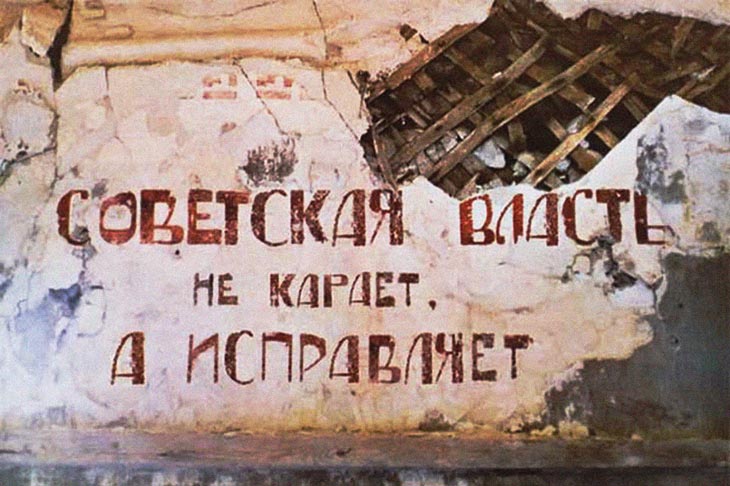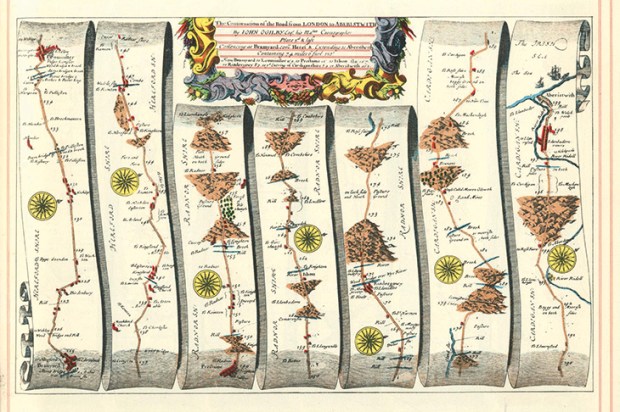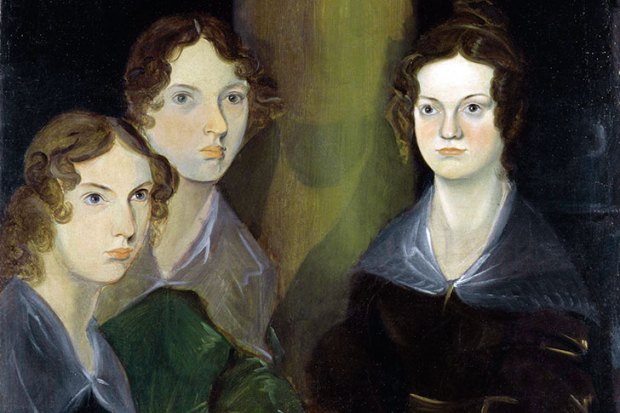Spare a thought for the poor Gulag guard: the rifleman standing in the freezing wind on the outside of the wire, almost as much a captive of the Stalinist prison machine as the inmates he’s guarding. Alexander Solzhenitsyn, Evgeniya Ginzburg and Varlaam Shalamov have left the world a rich, searing portrait of the Gulag from the point of view of the prisoner. But the diary of Ivan Chistyakov is unique — a narrative of the brutal conditions in Stalin’s Gulag, told from the point of view of one of the captors.
Chistyakov was a senior guard at the Baikal-Amur Corrective Labour Camp or BAMLag, and he wrote his personal diary in 1935–6, just as Stalin’s henchman Naftaliy Frenkel was putting his scheme for mobilising convict labour into high gear. Told with a telling eye for detail, the diary is a crushingly bleak portrait of casual violence, unfulfillable quotas, endless fights and escape attempts, inefficiency and injustice — all played out against the deadly dark and cold of a Siberian winter. On 10 December Chistyakov writes:
Minus 45 degrees. The trains run slowly. Only the moon, with a superior air, glides serenely through the sky. I stay indoors all day, wearing outer clothing… the stove warms you on one side while you freeze on the other.
His surviving diaries — which fill two neatly written exercise books — were donated by a relative to the Memorial Human Rights Centre in Moscow and published in Moscow in 2014. The timing of this translation could not be more apposite. Last November, Memorial — which is dedicated to chronicling the history of Stalin’s repressions, as well as later human rights abuses — published a list of over 40,000 members of the NKVD, the Stalin-era secret police, painstakingly compiled from the few open sources available to historians. The list proved extremely controversial; in a society where Stalin has been officially rehabilitated to the status of national hero, remembering his millions of victims has become deeply politically incorrect.
‘Until now, if anyone mentions the victims, it’s as though they were killed by a natural disaster, like an earthquake or a tidal wave,’ Yan Rachinsky of Memorial told the Washington Post. ‘They were victims of crimes and those crimes were committed by people.’
Chistyakov, a cultured ex-city dweller who finds himself in command of a detachment of armed Interior Ministry troops deep in the Siberian tundra, is both perpetrator and victim. We know of the author’s later fate only from a blurred snapshot pasted into the back of the second volume of the diary, recording that ‘Chistyakov, Ivan Petrovich, arrested in 1937–38’ was ‘killed at the front in Tula Province in 1941’. In other words, like thousands of Gulag guards and officers of the NKVD, Chistyakov was himself consumed in the purge that saw 700,000 Party officials and prosperous peasants liquidated between 1934 and 1939 and millions more sent to labour camps.
But what Chistyakov’s memoir doesn’t answer is the key moral and human question posed by Stalinism: who is responsible? Who are the guilty men? And more importantly, what motivated them? ‘Where did this wolf-tribe appear from among our own people?’ Alexander Solzhenitsyn asked in The Gulag Archipelago. ‘Does it really stem from our own roots? Our own blood? It is ours.’
The men drawn to serve in the NKVD, in the famous phrase of its founder Felix Dzerzhinsky, could be either saints or scoundrels. Clearly the service attracted more than its fair share of sadists and psychopaths, as we can see from Chistyakov’s descriptions of ‘the bunch of misfits’ who are his drunken subordinates. But Chistyakov is an unwilling cog in the apparatus. He has been assigned to the BAM involuntarily, spends much of his time scheming to get away at the earliest opportunity, and shares at least some of the material deprivations of the prisoners. He plans, frequently, to denounce the ‘madhouse shambles’ he finds among his fellow BAM officers and expose their ‘illiteracy’ and ‘misdeeds’.
Perhaps the most chilling psychological insight offered by the diary is the portrait of a humane man conforming to an inhuman system. ‘I’m beginning to have that mark on my face, the stamp of stupidity, narrowness, a kind of moronic expression,’ he writes. ‘My heart is desolate, it alarms me.’ And the diary is also a chronicle of the essential selfishness of human suffering: Chistyakov often laments for himself but rarely for the inmates, whom he describes as lazy and dishonest:
Today… I had to imprison one woman; there’s some muddle about an escape, a conflict with a phalanx leader, a knife fight. To hell with the lot of them!
But it is they, not he, who are being starved and worked to death.
‘To do evil, a human being must first of all believe that what he’s doing is good,’ wrote Solzhenitsyn. ‘Or else that it’s a well-considered act in conformity with natural law.’ Chistyakov offers no justification for the slave system that he is helping to run, or insight into the minds of the men who designed it. He is just a man struggling to survive a terrible hand dealt him by fate. He is only following orders, and the inhuman system of which he is a part seems to him as inexorable and invincible as the crushing frosts and the buzzing summer flies.
The prison literature of the Gulag, though grim, is often bleakly uplifting. There is the steady triumph of one man’s will to live, as portrayed in Solzhenitsyn’s One Day in the Life of Ivan Denisovich, and the survival of the human spirit in Ginzburg’s Into the Whirlwind. But there is no redemption in The Diary of a Gulag Prison Guard — only a portrait of the banality of evil, and the part that the daily compromises made by a single broken man, play in a vast machine of terror.
Got something to add? Join the discussion and comment below.
Get 10 issues for just $10
Subscribe to The Spectator Australia today for the next 10 magazine issues, plus full online access, for just $10.
You might disagree with half of it, but you’ll enjoy reading all of it. Try your first month for free, then just $2 a week for the remainder of your first year.














Comments
Don't miss out
Join the conversation with other Spectator Australia readers. Subscribe to leave a comment.
SUBSCRIBEAlready a subscriber? Log in